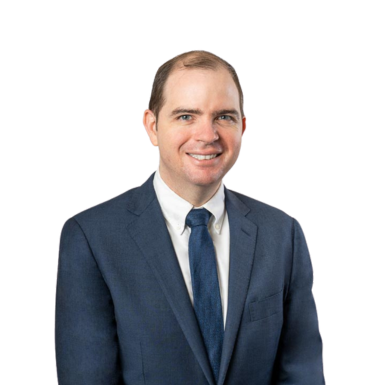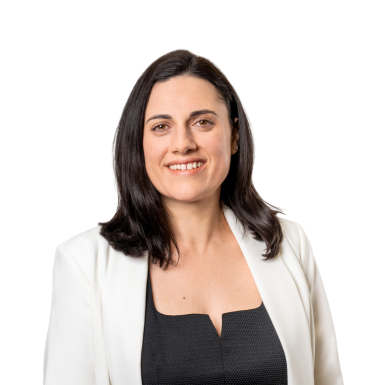From 1 July 2019, the Shared Debt Recovery Scheme will allow the Commonwealth Government to hold a practitioner (primary debtor) as well as another party such as medical and other health practices (secondary debtor) responsible for repayment of debts resulting from incorrectly claiming Medicare benefits.
According to the recently enacted Health Insurance (Medicare Compliance Shared Debt) Instrument 2019, issued by the Minister for Health, the prescribed default percentage that may be applied to the secondary debtor is 35%.
On 1 July 2019, the Shared Debt Recovery Scheme (SDRS) commences under the Health Insurance Act 1973 (Cth). The aim of the SDRS is to encourage practitioners and organisations to work together to minimise incorrect billing, respond to Medicare audits and promptly repay debts arising from incorrect Medicare claims.
The Department of Health has confirmed that primary responsibility for correct claiming will remain with the health practitioner providing the Medicare service, as ultimately only they can determine whether a service satisfied the particular requirements of the Medicare Benefits Schedule (MBS) item number claimed, including clinical requirements.
The SDRS will apply to Medicare compliance audits conducted by the Department of Health, which examine whether all MBS item requirements have been met for services for which a Medicare benefit has been paid. The Department of Health will request that practitioners who are the subject of a Medicare audit produce documents related to identified services.
It will be incumbent upon the individual practitioner the subject of a Medicare audit to request that the SDRS apply to a debt on the basis that an employment, contractual or other relevant relationship exists with another party such as a medical practice or other health practice entity (the potential secondary debtor). The Department of Health audit officer will then be responsible for providing notice to the potential secondary debtor, and may request documents from both parties relevant to determining whether there should be a shared debt determination.
Before a shared debt determination is made, written notice must be provided by the Chief Executive Medicare with respect to notice of intention to make a shared debt determination, including the amount of the debt and the proportion of the debt to be recovered from each party, with reasons provided for the decision. Both the practitioner and potential secondary debtor will be afforded the opportunity to provide a written response with respect to whether the Chief Executive Medicare should make a shared debt determination and, if so, the particular percentage of debt that should be applied to each party.
The Department of Health has advised that in order for a shared debt determination to be made, the following three criteria must apply:
- There is a recoverable amount (a debt) as a result of the making of a false or misleading statement;
- There is a relationship between the primary debtor (practitioner) and secondary debtor (organisation); and
- The secondary debtor could have controlled or influenced the making of the false or misleading statement, obtained a direct or indirect financial benefit from the making of the false or misleading statement, and/or there are other factors that make it fair and reasonable for a shared debt determination to be made.
These criteria are reflected in clause 129ACA of the Health Legislation Amendment (Improved Medicare Compliance and Other Measures) Bill 2018 titled ‘Shared debt determinations’, which will be inserted into the Health Insurance Act 1973.
It is now apparent that the percentage determined by the Chief Executive Medicare that is recoverable from the secondary debtor must be 35%, which is the default percentage specified by the Minister for Health, unless the Chief Executive Medicare reasonably believes in all the circumstances of the case that it is fair and reasonable that a different percentage be determined. Matters that may be taken into account include whether there were any arrangements between the parties for apportioning the benefits paid, the proportion of benefits received by the primary debtor and secondary debtor, and what influence/control the secondary debtor may have had over the billing of the services.
The Department of Health has confirmed that the SDRS will not apply to:
- Claims adjustments that routinely occur as part of health practice, where a practitioner alerts the Department of Human Services to an error made for correction of the claims record;
- A voluntary acknowledgement by a practitioner of incorrect payments;
- Debts arising as a result of ‘inappropriate practice’ following referral to Professional Services Review (PSR);
- Debts arising as a result of a false or misleading statement which can be shown to have been made by someone other than the practitioner (and not made on behalf of the practitioner); or
- Debts arising where one party has, without knowledge of the other, engaged in criminal conduct (fraud) in relation to Medicare claims or billing.
The necessary implication of these reforms is that both individual practitioners and health practices must ensure MBS item numbers are correctly claimed under a practitioner’s provider number.
Practitioners should consider as early as possible whether they are able to request with Medicare that the SDRS apply to their matter so that they are not prevented from accessing it, and potentially unnecessarily exposed to recovery of 100% of the debt. Moreover, it should be noted the SDRS does not apply to PSR debts, or the other classes of debts referred to above.
Meridian Lawyers assists health practitioners in responding to Medicare audits, as well as the separate process involving investigations by the Professional Services Review (on referral by Medicare).
This article was written by Principal Daniel Davison and Senior Associate Sarah Twinn. Please contact them if you have any questions or would like more information.




 Meet our Team
Meet our Team View our Insights
View our Insights